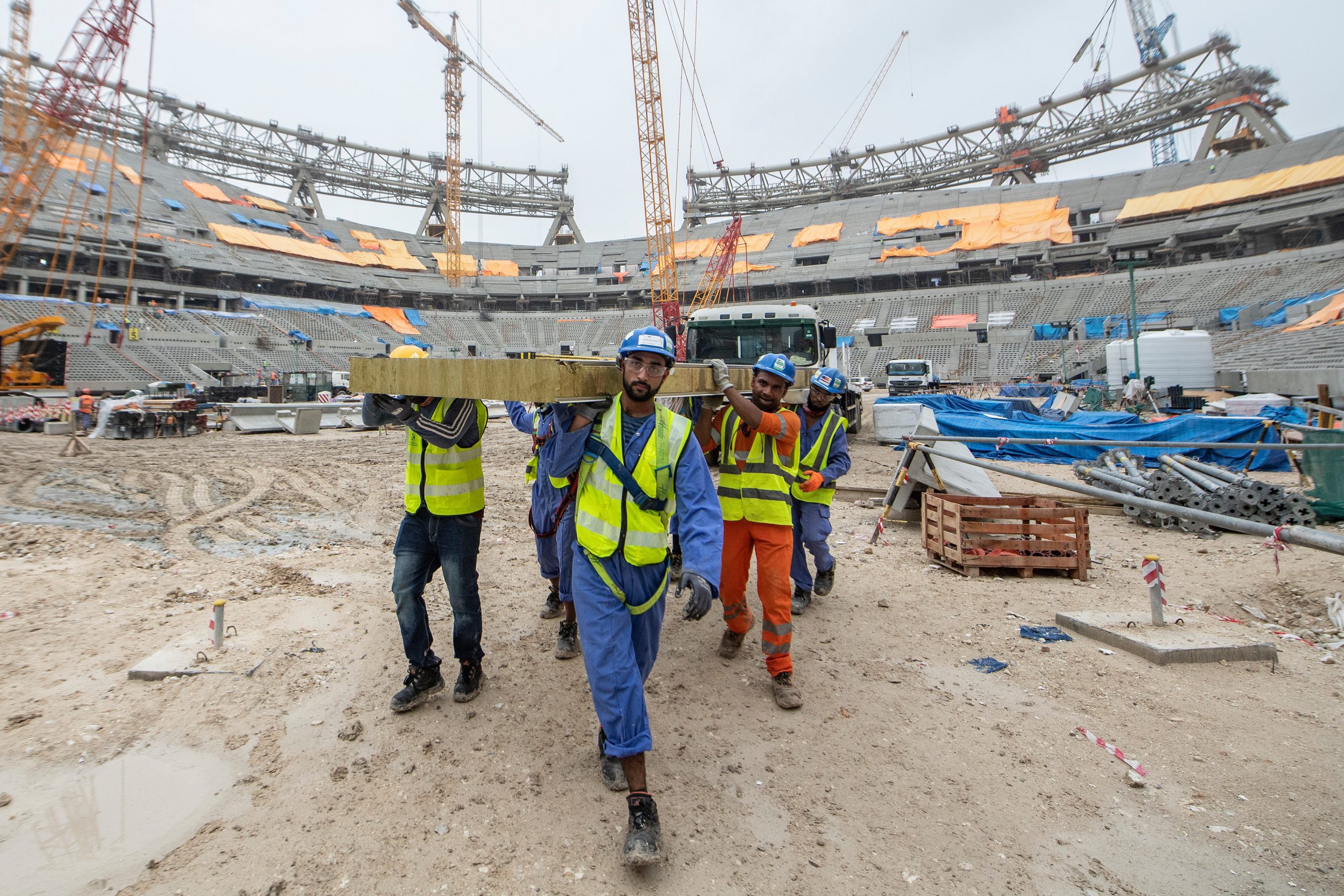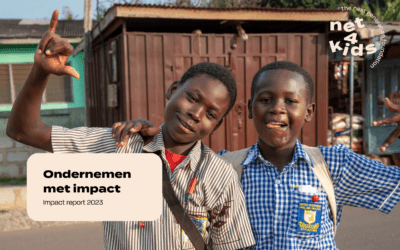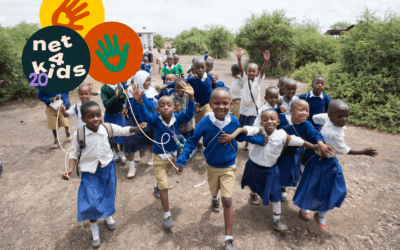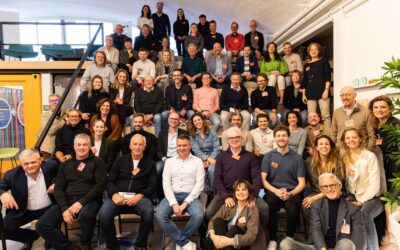The World Cup football started for us, like so many in our country, with a mixed feeling. Of course we at Net4kids are happy that we are in the quarterfinals, even Anke is now for the Orange squad now that her native Germany has been eliminated. 😉 But the stories of the workers from the countries where we have projects (including Nepal and Sri Lanka) who died during the construction of the stadiums, the way the major football organizations are now dealing with this, make us think. What can you do? Does it help not to look? No, that's not a solution. Shouldn't we tell more about what Net4kids is doing in Nepal? That is possible. It has become this blog.
The World Cup workers from Nepal
Amnesty International has a wonderful message in the commercials around the first matches. They are not calling for a boycott of the 2022 World Cup in Qatar, but are instead seeking to use the attention the tournament is receiving to bring about real and lasting change for the country's workers. And precisely this lasting change is something we have been working on for years with Net4kids and our local partner organizations in Nepal, Child Watabaran Center Nepal (CWCN) and Nepal Matri Griha (NMG). But then in Nepal itself.
Labor migration in Nepal is nothing new
Ever since the 1990s, early 2000s, there has been systematic emigration of Nepalese young people to countries such as Qatar, Malaysia, Saudi Arabia and Dubai. Very tragic to see the young and productive people of Nepal treated like commodities and illegally sold to another country. The Nepalese youths were asked to pay money ranging from 50,000 rupees to 150,000 (approximately €1,000) to obtain visas to work in these countries. A huge amount and that is why young people borrow money from the local lenders (individuals and relatives) to pay for visa processing and flight tickets.
After the election (in 2010) as the host country of the World Cup, Qatar became a real one hotspot for Nepalese youth. It was made easier to get a visa to this country simply because it took a huge amount of manpower to build the infrastructure for the football world cup. Due to the publication of The Guardian, finally pay attention to.
The stories from Nepal from CWCN
And that attention is badly needed, because we have known these tragic stories since the early years of Net4kids (since 2003). Together with our local partner organization CWCN, we supported (families of) young migrant workers in Nepal with mobile health care in Kathmandu. And with NMG, the poorest children of these families are offered a chance for good education at the NMG School. These often already very poor (Dalit) families are left with a huge debt if their relatives do not return. And while looking for work in Qatar (and other countries) for the Nepalese young people always arises from the intention to help their poor families, it has the opposite effect and families sink even further into poverty. This is how these families, often single women, end up in the slums where, for example, CWCN was active for years with health care programs.
We also encounter young people in the current new approach of CWCN, which has had an outreach program since 2020 aimed at young people (and specifically girls) in their own communities around Kathmandu in which education, health care and personal development (sports & life skills) are central. who have worked in Qatar, or have lost their relatives there. The CWCN staffers tell us the intense stories. Young people travel to Qatar without speaking good English or Arabic. They are lured with fake insurance papers, and think they are covered for any medical costs in this way. Nothing is less true. They have nowhere to ask for help once they arrive in Qatar. To get attention, the workers organize protests on the spot, but you can just end up in prison for that and get a life sentence. There is no legal support from the government of Nepal to defend these kinds of lawsuits.
The workers who return to Nepal because they are injured or fall ill have no social and health insurance or pension when they come back. Another case encountered by CWCN staff was a young person who was promised a good salary and good working conditions in the construction industry for the World Cup in Qatar. But when he landed there, he didn't get the promised salary. So he was forced to return to Nepal and was unable to repay the loan he borrowed in Nepal for the visa and tickets. This is a trap many young people fall into. With a salary of only 25,000, you will never be able to repay the 150,000 rupees ($1,000) you spent to work in Qatar at all (that's without the cost of airfare, getting your passport, and doing medical checks) ). With an interest of 12-16% per year, you can calculate how long it will take for these returned young people to repay their loan.
What is being done?
Amnesty International calls on FIFA and Qatar to set up a fund to compensate the exploited workers. With a petition and the possibility to show the commercial yourself when you show matches to others, these are great ways to draw attention to this. Together with other human rights organisations, they are working hard to bring about change in the position of migrant workers. The message is clear: it can't go on like this anymore, it's modern slavery. Tirtha Rasaili, Founder of CWCN: “The cost of such horrible labor exploitation is enormous for the individual youth and the families, but the socio-economic damage for the society is equally irreparable. It is modern-day slavery where countries do treat Nepali youths as commodities by selling the sweats and blood of these youths.”
Net4kids continues to focus on vulnerable youth and their communities in Nepal. Because unfortunately, the young people who are forced to take on such risky jobs are the very ones who already come from the very poor communities. And that is why the work of our local partners remains so important. CWCN makes a big difference in the communities around Kathmandu in improving the standard of living. Offering life skills programs for young people (such as Volleyball4Life, among others) also means that young people are better able to stand up for themselves in the future. And NMG's (primary) school program is extremely important for a fair start to a child's development. With a (good) education you can make different choices, even in a poor country like Nepal.
In cooperation with the local authorities, CWCN improves the infrastructure, such as better schools, social institutions, affordable health care, and more information about your rights as a person, woman, child. And for the families of the deceased workers, micro-credit programs offer a structural way to get them out of the vulnerable position they now find themselves in. For example, the women are able to provide for their own income, and thanks to CWCN they receive a contribution towards school fees and health insurance for all family members.
Thanks to the support Net4kids receives from companies such as Visualfabriq, Nextview, Ygrec and Giarte, who have been investing in the projects of CWCN and NMG for many years, we enable our local heroes in Nepal to continue working on systemic change in the country. Everyone deserves the chance to develop themselves, wherever you were born. In this way we want to ensure that fewer and fewer young people from Nepal are forced to take on these risky jobs, but that a generation of young people really emerges who (can) make different choices.
You can find more information about CWCN's program in Nepal here here. And if you want to know more about the NMG School, take a look here. And do you want to discuss whether you can also mean something, as an individual or with your company? Send us a quick message.
Have a nice Friday game. Go Orange.




